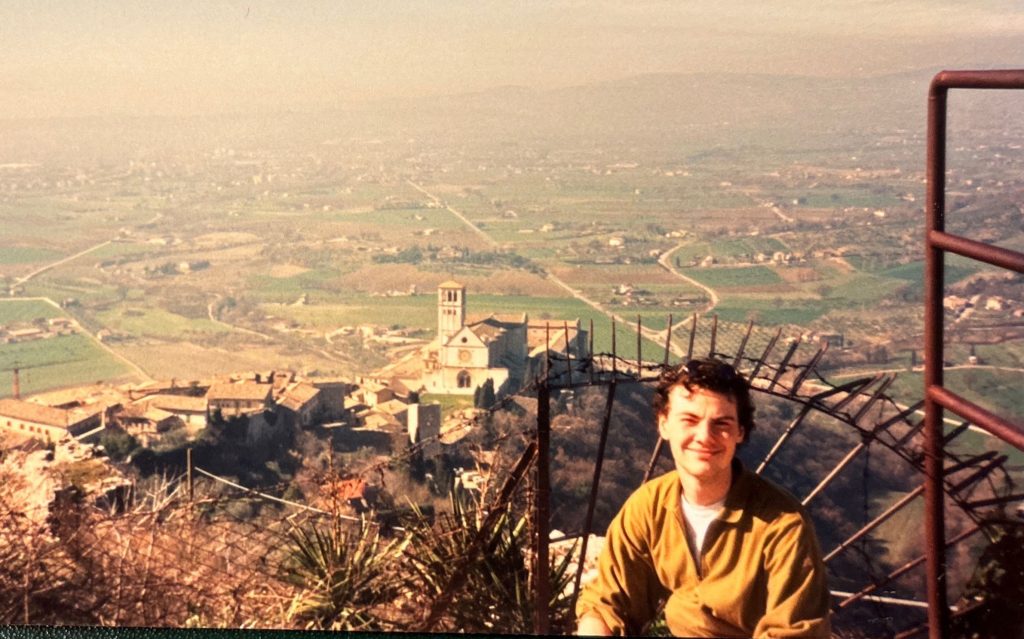
Matthew Barone was a mass communications major from Quinnipiac University in Hamden, CT, when he came to study in Florence 30 years ago. Fieldtrips to Etruscan sites that he took while he was here ignited a passion that ultimately led him to return this past summer and take part in an archeological dig.
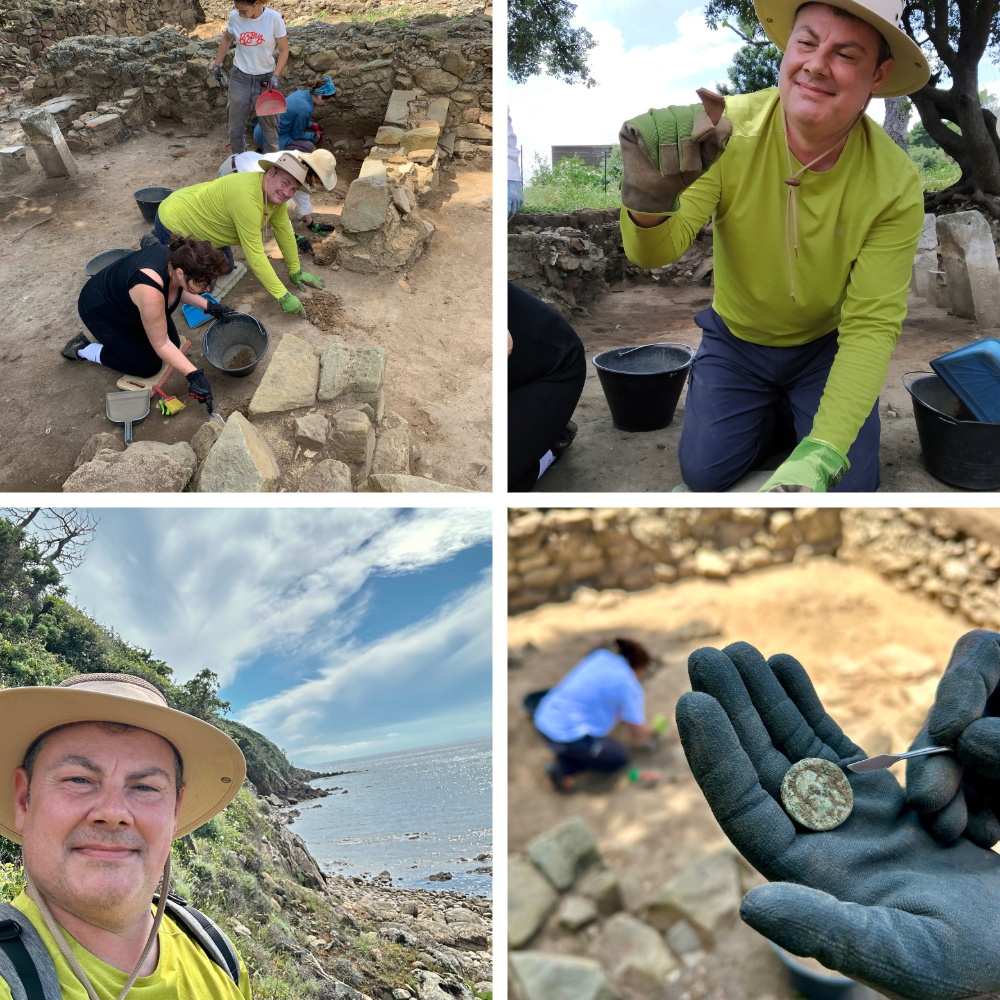
You had a very positive experience with your host family, the Romanelli’s. Please tell us more about that.
Nara and Nello were long-time host families with SU and their students. While they spoke no English, I was really looking to improve my Italian and what better way to do that than by speaking it at dinner and in general conversation. I learned so much, from the foods we ate to the TV shows we watched at night. And living in the Oltrarno gave me a truly residential experience with no tourists to be found. I actually enjoyed getting on a bus and finding my way around the city as a true commuter. Eventually I upgraded to a bike which was a lot of fun.
Everything in the Romanelli household revolved around food. Nara woke very early – maybe 6:30am – to head out to the markets and begin to prepare a spectacular feast. I could not have gotten this experience in a dorm, nor the wonderful relationship we had until her death a few years ago. We kept in touch every year. Today her son [famous food critic] Leonardo is a foodie walking in his mother’s footsteps.
What did you like about the Syracuse Florence program?
I really enjoyed getting to know the students who came from other university programs from across the country. They had such diverse interests and something about Florence brought us together. The flexibility for long weekends gave us a chance to explore the region. I went to Innsbruck, Austria, with a number of new friends where we skied and dined on German food. We traveled east to Prague and then Budapest which still felt dark with its very recent separation from the USSR. A group of us American students decided to experience the carnival in Viareggio prior to Lent – a big education and beautiful beaches.
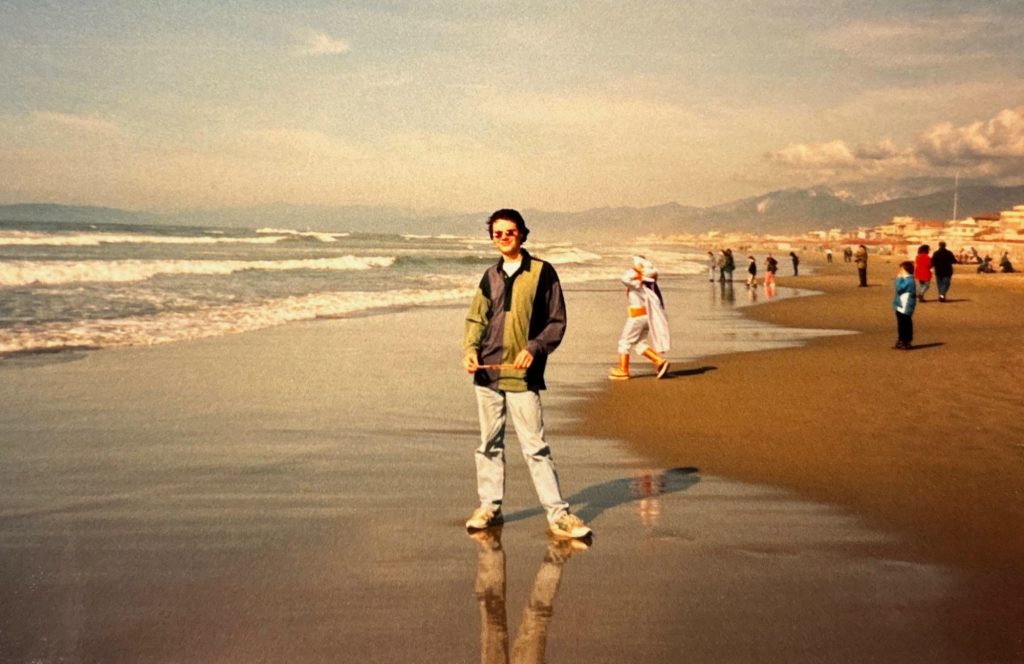
And when the exploring was done I returned for classes with some dedicated faculty – one in particular that I remember taught us British or American literature. [Professor Dorothea Barrett]. She pointed out how this experience would be life-changing and that if we didn’t write it down in journals we ran the risk of losing it forever. I shared some great stories with my class that semester: one about learning the etiquette of riding the local busses the hard way; and another about having a picnic with good friend and SU program peer Katie Vaile at Forte Belvedere where a beautiful dog ambitiously tried – but failed – to chase a frisbee off the tall walls and instead fell into the Boboli Gardens.
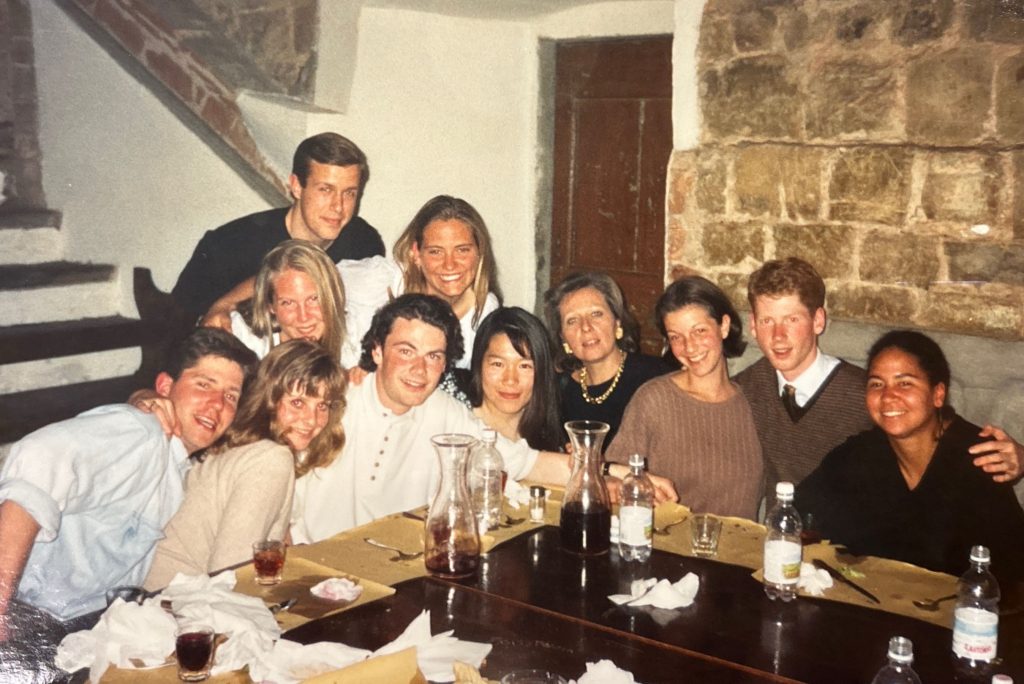
Please tell us more about how our fieldtrip program led to you return to Italy
Most weekends SU had organized fieldtrips going all over the region. Not only was it an incredible way to learn more about a subject outside my comfort zone but it forced me to meet a new group of students and bond with them. I loved these trips so much. In particular I was deeply fascinated by the Etruscan Field Trip Series offered by Prof. Judith Barragli.
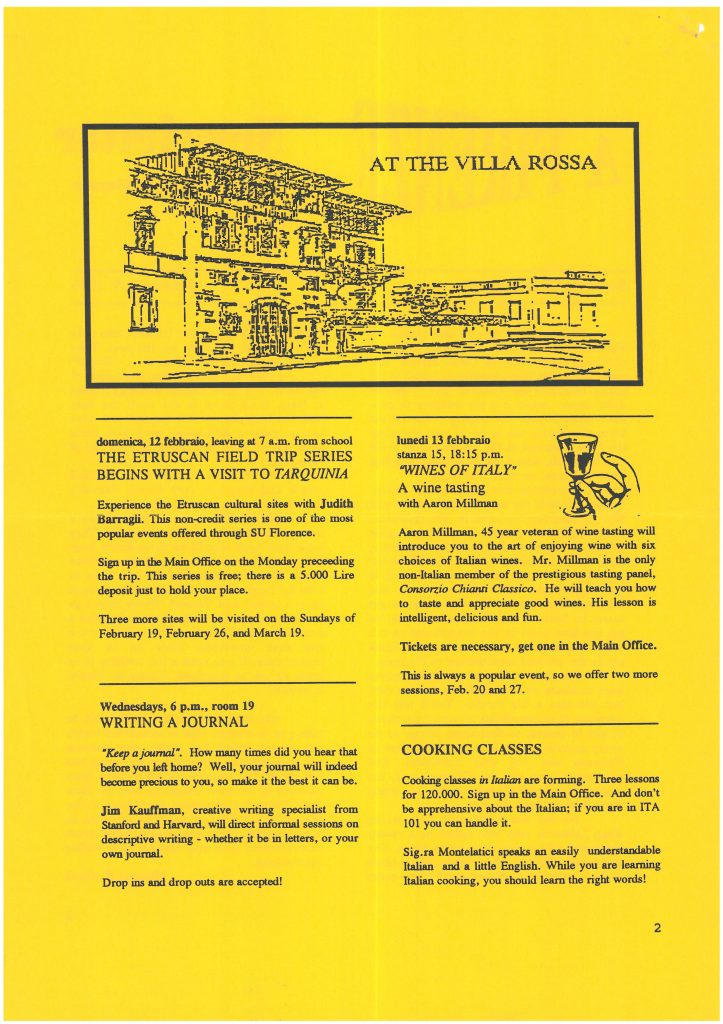
I went to Tarquinia, Vulci, and other fascinating locations and soaked up knowledge and history far outside my usual studies back home. One time we had to pretend we were graduate students in archeology to get special permission to walk down into the Etruscan tombs.
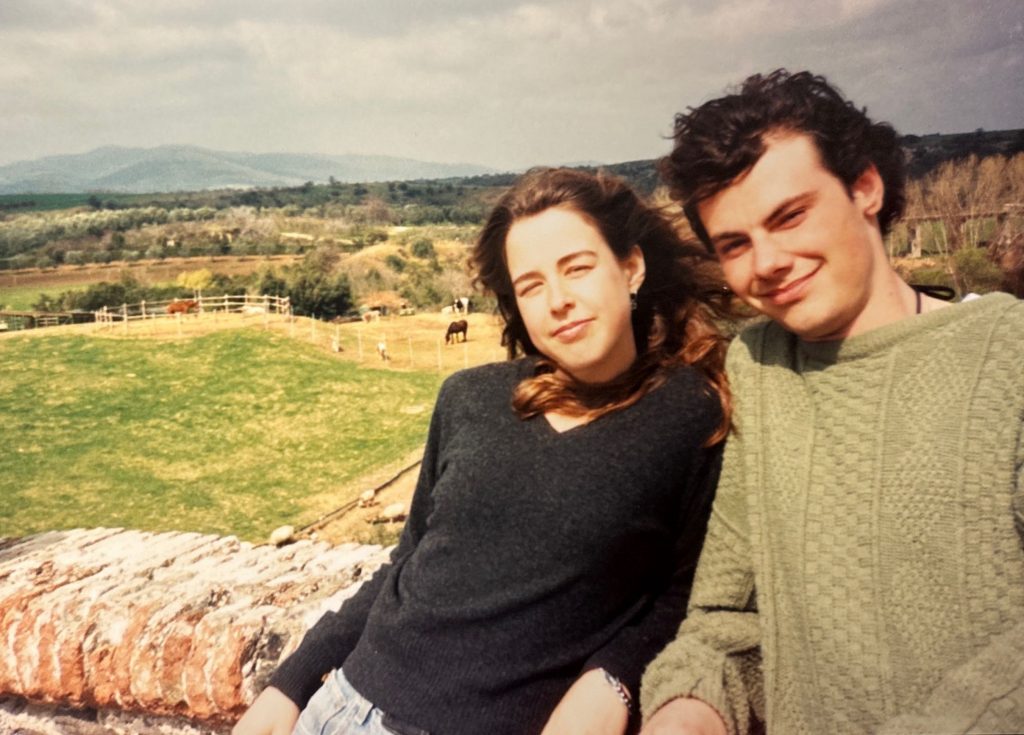
Being exposed to this pre-Roman civilization inspired my lifelong learning of the subject. This summer I returned through the organization Earthwatch to join an archeological team digging nearby along the coastline in Populonia. The learning just never ends and I loved coming full circle with the discovery of a passion on a field trip, never forgetting it, and finding a way to return and contribute to a modern dig. Both experiences were once-in-a-lifetime.
How does today’s Florence compare to when you were here as a student?
I think today’s Florence is much cleaner thanks to new technology in cars and mopeds along with some stricter environmental laws. The Duomo was actually white marble, and when I was a student it was a black, tar-like color, and I recall always having to blow my nose. The city in most ways has stayed the same. I found many of the same restaurants still bustling with patrons, and the quality of the food was never an issue.
Seeing the Villa Rossa again was a special treat because the building itself felt the same. Dozens of memories rushed through my head, and the garden area was expanded, but it was the same beautiful space I’d remembered as a lost American student leaving home for the first time and finding myself and my own identity after the program ended.
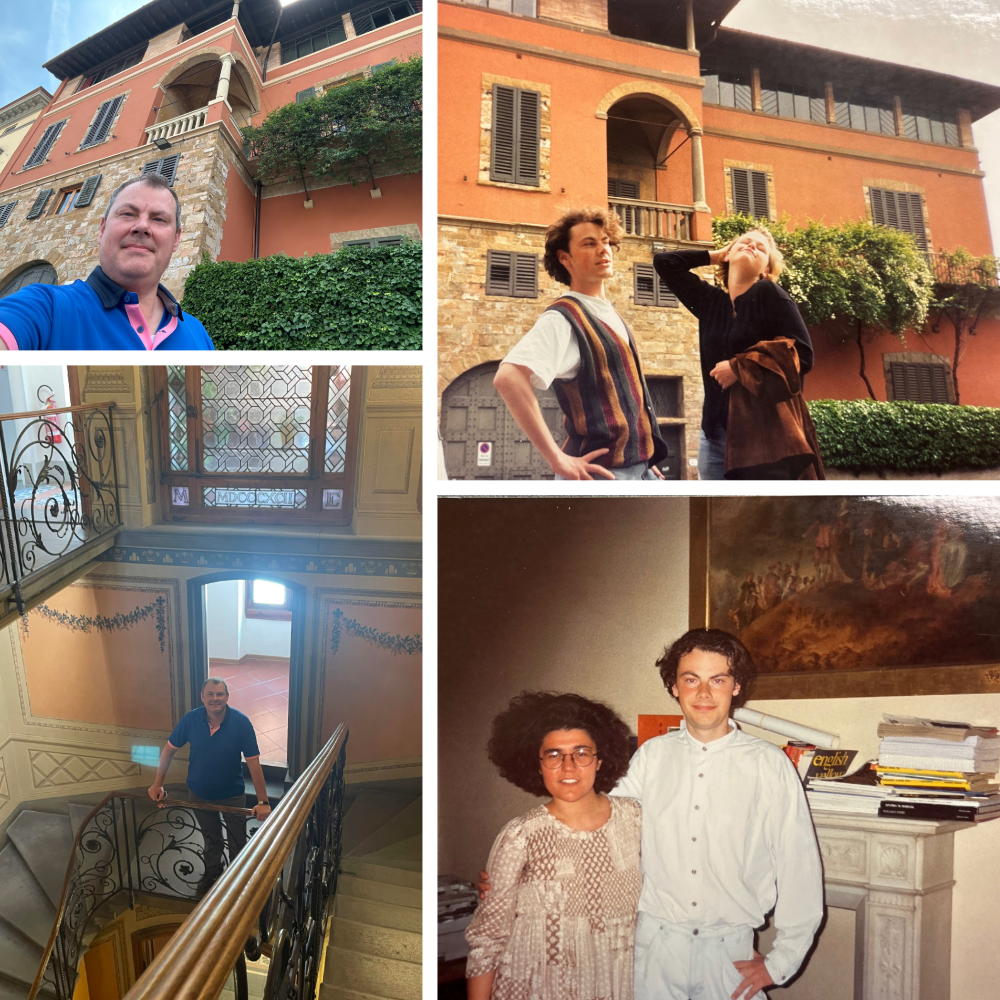
What advice would you have for current students?
The best advice I got previously was to document your experience for the future. I still have my beautiful journal of memories to remind me of my youth, naivete, and yearning to explore. The other would be to never stay in your room except to sleep. Study outdoors in a café, or a piazza…go on fieldtrips with people you don’t know and explore subjects like I did that had no impact on my career but forever warmed my soul. In addition you may just meet friends for life. I’ve been lucky to keep in touch with several friends from this program and am a better person for it.
